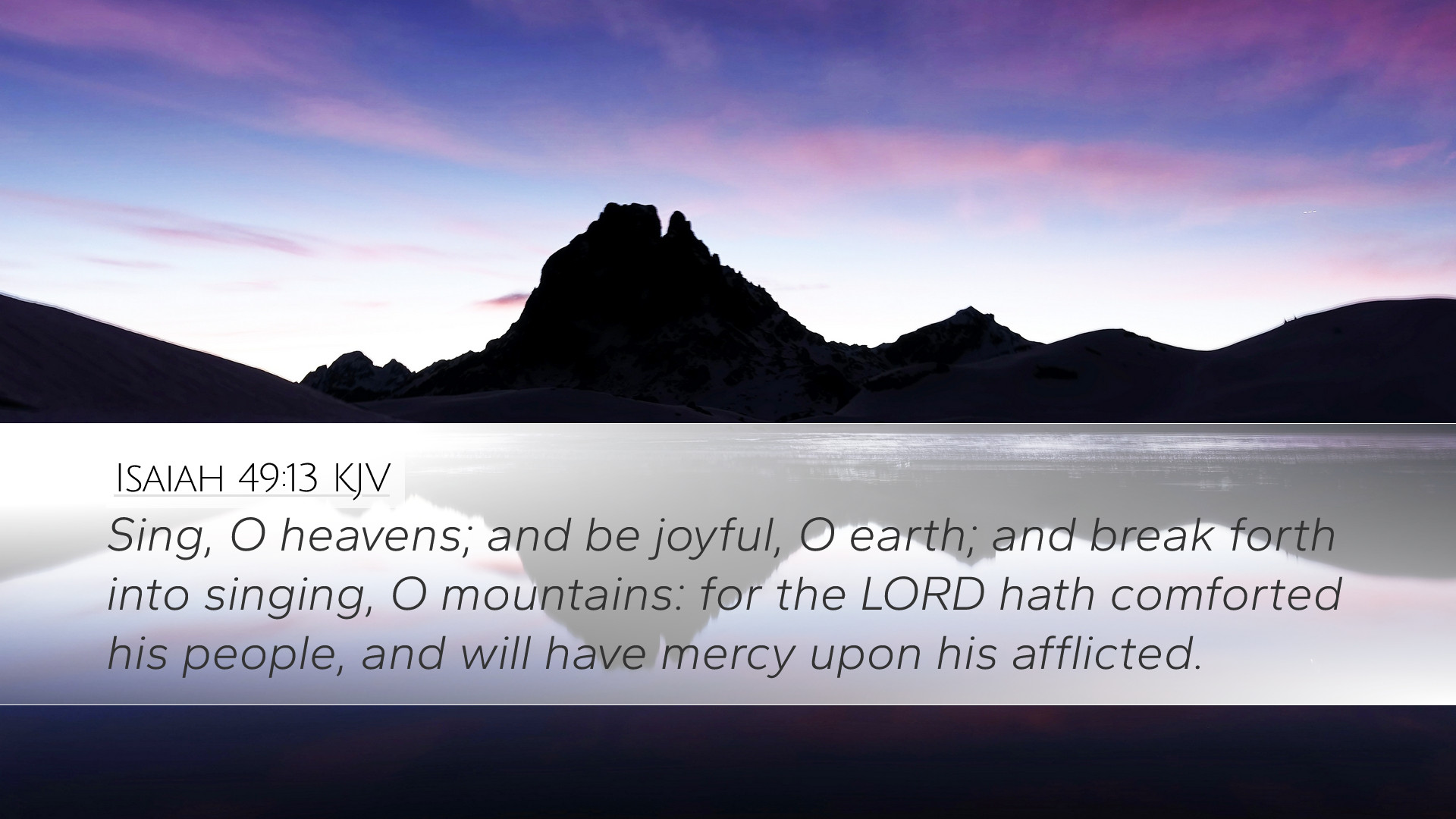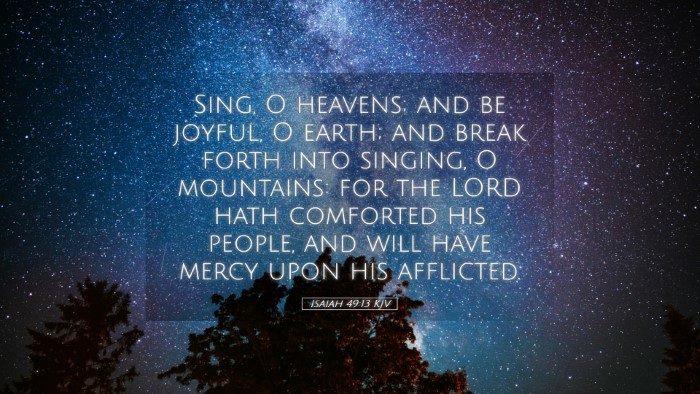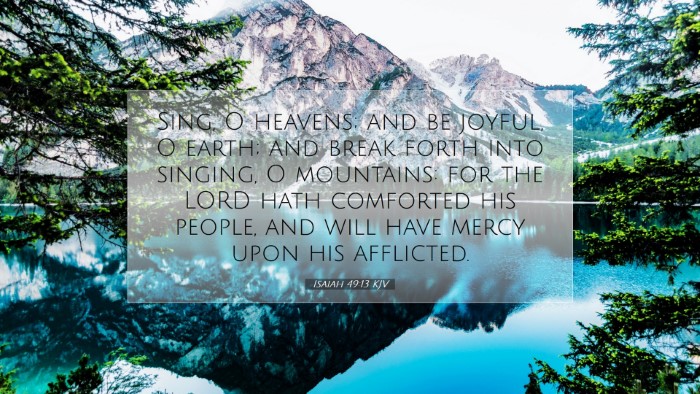Commentary on Isaiah 49:13
Verse Context: Isaiah 49:13 states, “Sing, O heavens; and be joyful, O earth; and break forth into singing, O mountains: for the LORD hath comforted his people, and will have mercy upon his afflicted.” This verse encapsulates a message of joy and comfort, calling for all of creation to respond to God's mercy towards His people.
Overview of the Commentary
The insightful commentaries by Matthew Henry, Albert Barnes, and Adam Clarke collectively illuminate the theological significance of Isaiah 49:13. Their perspectives highlight themes of God’s love, the restoration of His people, and the cosmic response to divine grace.
The Call to Creation
Henry elaborates on the idea that the heavens and the earth are summoned to engage in joy and singing. This universal rejoicing signifies the magnitude of God's mercy. The call is not limited to humankind but extends to all creation, reflecting the comprehensive nature of salvation and the restoration that God offers.
Heavenly Joy
According to Barnes, the joy expressed in the heavens illustrates the spiritual celebration that occurs in the celestial realm whenever God shows compassion to His chosen people. Such instances are pivotal, as they reveal the connection between the divine will and the response of the universe to God's redemptive acts.
Joy of the Earth
Clarke emphasizes the significance of the earth's joy, suggesting that nature itself anticipates and reflects the mercy of God. This anthropomorphism compels readers to understand the interconnectedness of creation and its Creator, where even the mountains join in harmonious celebration of the restoration of God’s people.
God's Comfort and Mercy
Divine Comfort: The latter part of the verse—“the LORD hath comforted his people”—is crucial as it signifies a profound act of divine intervention. The term 'comforted' embodies the essence of God’s engagement with His people in their suffering and adversity.
Theological Reflections
Henry suggests that the comfort provided by God possesses both reassurance and healing for His afflicted. It serves as a reminder of the covenant commitment God has with His people, offering hope amid despair.
The Assurance of Mercy
Barnes notes that the mercy God extends is an expression of His unwavering character. It reassures believers of their standing before God, reinforcing the idea that divine mercy supersedes human failings and transgressions.
Contextual Application
This verse compels pastors and theologians to reflect on the themes of hope and restoration in their preaching and teaching. It serves as a reminder to the Church of its mission to be agents of comfort and grace in a world often marred by suffering and injustice.
Encouragement for the Afflicted
Clarke articulates that those who feel afflicted should take heart from this verse. It conveys that God notices their struggles, and His mercy is readily available. This message is vital for pastoral care, as it provides a foundation for counseling and ministering to the hurting.
Application for Spiritual Leaders
Leaders are called to proclaim the mercy of God actively, encouraging congregations to rejoice in their identity as God's chosen people. The divine initiative in granting comfort should inspire a communal response wherein believers collectively celebrate God’s grace.
Conclusion
Isaiah 49:13 serves as a divine invitation to rejoice in God's mercy and comfort. Collectively, the insights of Henry, Barnes, and Clarke reinforce the transformative power of divine grace, encouraging believers to embrace and share the profound joy that arises from understanding God's redemptive plan. This verse not only uplifts the afflicted but also challenges the Church to embody the joy and compassion inherent in God’s character.
Practical Reflection
- Reflect on God's mercy: Take time to consider how God's comfort has manifested in your life.
- Extend comfort to others: Look for opportunities to share the mercy you have received with those around you.
- Create communal celebrations: Foster an environment in your church that encourages corporate worship and celebration of God's goodness.


